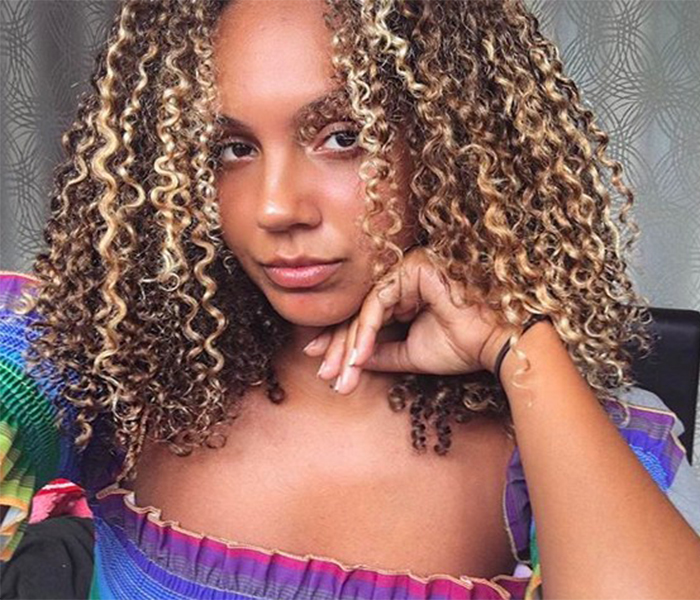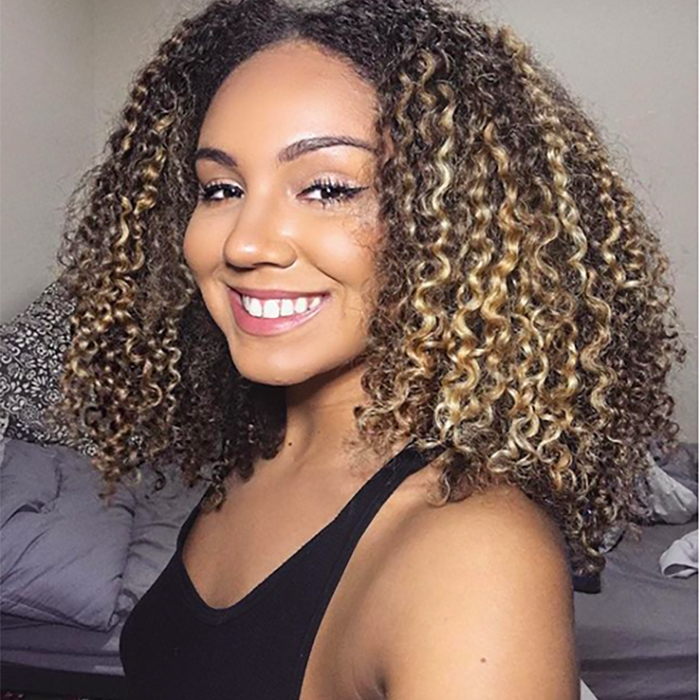This month, Naturally Curly and The Curl Talk Project are partnering to explore the link between natural hair and the notions of identity, femininity, diversity, race and representation.
Six ladies will share their experiences, from Germany to the UK these women reveal what it means to be a curly-haired woman in a society where beauty standards are otherwise. Discover their stories below.

Image Source: @pennyfroreal
You are from the UK, tell us how curls are perceived over there?
Quite well, but it also depends on the type of curls we are talking about.Being mixed-race, my curls are quite loose which I believe makes my hair be perceived as more acceptable than the tighter type.
What was it like growing up with curly hair?
My mother was good at taking care of my hair so it didn’t appear as an issue for me. I also had a lot of black friends in school who had similar hairstyles as me so I didn’t really think anything of it. This changed when I moved to a predominantly white school and started competitive swimming. This new life made me realize how different from other people, my hair was. It became difficult for me to fit in an environment where something that naturally grew out of my head was being highlighted as uncommon.
Do you feel there is a connection between femininity and how you feel about your hair?
In people’s minds length is strongly linked to femininity, which I don’t think is quite right. Women with kinky short hair can be as beautiful and feminine as women with long loose curls. It’s time to accept this and understand that society has simply imposed beauty standards for us to aspire to.

Why is natural hair so strongly linked to identity?
Your hair can be an indication of your ethnicity. I am mixed-race, juggling between two ethnicities and struggling to fit into each of them.
What has your experience been like wearing your natural hair to work?
Generally, it’s been good. I received a lot of compliments, but also a lot of ignorant questions in regards to my routine and to what it looks like (noodles seem to be a plausible option for some people”>. Random hands touching it can also be quite common.
What has been the most challenging moments of your hair journey?
It’s hard not to compare your hair to other women’s especially in this social media age where some people will inspire you, but will also make you feel quite bad about your achievements during your natural hair journey. It’s also difficult to unlearn what has been taught to us and embrace our hair as it is. People tend to underestimate the courage it takes to go out with your natural hair from one day to another!
What are your holy grails?
- Shampoo & conditioner: Revlon realistic
- Mask: Bighair clay mask
- Leave-in conditioner: Retro rich – royal roots
- Cream styler: SheaMoisture Curl Enhancing Smoothie
- Gel: Boucleme Curl Defining Gel

What advice would you give to women struggling to embrace their curls?
Don’t compare yourself to other people. Each journey is different and needs to be.
What does your natural hair represent?
It is representative of my personality. I struggled so much to like my curls that I am now in a position where I can make up for all this time spent hating it.
Read more stories of The Curl Talk Project here!
